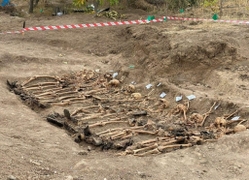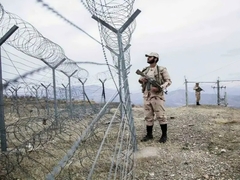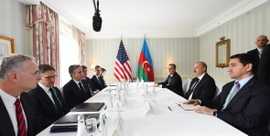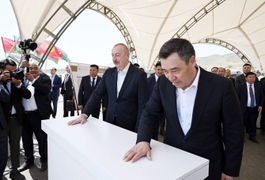Azerbaijan President Ilham Aliyev recently spoke about the 2020 war with Armenia and the progress on the subsequent peace process between the two countries.
In a congratulatory message on the Novruz holiday in the liberated Talysh village on Saturday, President Aliyev noted the war reshaped Armenia’s plans – from claims for the Karabakh (Garabagh) region of Azerbaijan to requests for opportunities to live in Armenia’s territory of 29,000 square kilometres.
“Notice what the Armenian leadership, which used to say that “Karabakh is Armenia, full stop”, is saying now. Today, they are asking us to give them the opportunity to live on an area of 29,000 square kilometers,” President Aliyev said in the message published by his press service.
“Why didn't they say this during the occupation? During the occupation, why did they attempt to annex all our occupied lands under the name of the ‘Nagorno-Karabakh Republic’ and publish books about that? Why didn't international organizations and certain pro-Armenian countries, who turned a blind eye to these ugly and illegal acts, criticize Armenia at that time? How much longer do we have to deal with double standards?” the message read.
The president noted the lack of efforts from international organizations to settle the conflict which resulted in the 44-day Second Karabakh War from September 27-November 10 in 2020 when Azerbaijan had to apply force to restore its territorial integrity in accordance with the UN Charter.
According to the president, Armenia, which used to say that “Karabakh is Armenia, full stop” and threatened Azerbaijan with a new war, is now attempting to seek new patronage.
“All this is to no avail. There is one condition for them to live comfortably on an area of 29,000 square kilometers – Armenia must accept our conditions, officially recognize Karabakh as the territory of Azerbaijan, sign a peace treaty with us and carry out delimitation work according to our conditions. Only under these circumstances can they live comfortably on an area of 29,000 square kilometers, which is all they want now. If Armenia does not recognize our territorial integrity, we will not recognize their territorial integrity either," President Aliyev said.
Armenia and Azerbaijan have long been at odds over the latter's Karabakh (Garabagh) region. Following the Soviet Union’s dissolution in 1991, Armenia launched a military campaign against Azerbaijan that lasted until a ceasefire deal was reached in 1994. As a result of the conflict, Armenia occupied 20 percent of Azerbaijan’s internationally recognized territories. Over 30,000 ethnic Azerbaijanis were killed, and one million were expelled from these lands in a brutal ethnic cleansing campaign carried out by Armenia.
On September 27, 2020, the decades-old conflict between the two countries spiraled after Armenia’s forces deployed in occupied Azerbaijani lands shelled military positions and civilian settlements of Azerbaijan. During counter-attack operations, Azerbaijani forces liberated over 300 settlements, including the cities of Jabrayil, Fuzuli, Zangilan, Gubadli, and Shusha. The war ended in a statement signed on November 10, 2020, under which Armenia returned the occupied Aghdam, Kalbajar, and Lachin districts to Azerbaijan.
Talysh village was occupied by the Armenian army at the beginning of the First Karabakh War in 1991, but during the blitzkrieg Aghdara operation of 1992, it was freed from the Armenian invaders. However, in April 1994, the Armenian forces recaptured the village. Talysh was among the Azerbaijani settlements destroyed and plundered by Armenians during the years of occupation.
On April 2, 2016, during the Four-Day War, the strategic heights around the village of Talysh were liberated by the Azerbaijani troops. Talysh village was one of the hundreds of settlements liberated by the Azerbaijani army during the 44-day Second Karabakh War in 2020.
On March 16, the first group of internally displaced persons (IDPs) comprising 20 families was returned to Talysh by the Azerbaijani government as part of the “Great Return” program. A total of 180 families will be resettled in the village by the end of 2023.
President Aliyev said the outcomes of the 30-year-long Armenian occupation in the Azerbaijani lands should not be forgotten and be considered for the future peace treaty. According to him, there are attempts to deliberately deny the occupation and the destruction, including atrocities in Aghdam that turned the city into the “Hiroshima of the Caucasus”.
“They want to forget it and make us forget it. It will never be the case. The realities of the occupation, the realities of the war and the post-war realities must and will be reflected in the peace negotiations. Otherwise, there will be no peace agreement,” Aliyev said.
Shortly after the Second Karabakh War of 2020, the Azerbaijani authorities voiced readiness and determination to launch negotiations with Armenia that would ultimately bring the long-awaited peace to the region.
However, the process suffered major setbacks due to Armenia’s demands, including so-called “rights and security” for nearly 25,000 Armenians living in the Karabakh region, in addition to avoiding fulfilling its obligations under the Trilateral statement, such as the withdrawal of its armed formations from the Azerbaijani territories.
Currently, Armenian authorities are calling for the creation of an “international mechanism” to monitor the negotiations between Azerbaijan and the Armenian residents of the Karabakh region. However, Baku adamantly rejects these proposals, claiming that Armenians in the Karabakh region are the citizens of Azerbaijan and their rights are not subject to discussions with any third party.


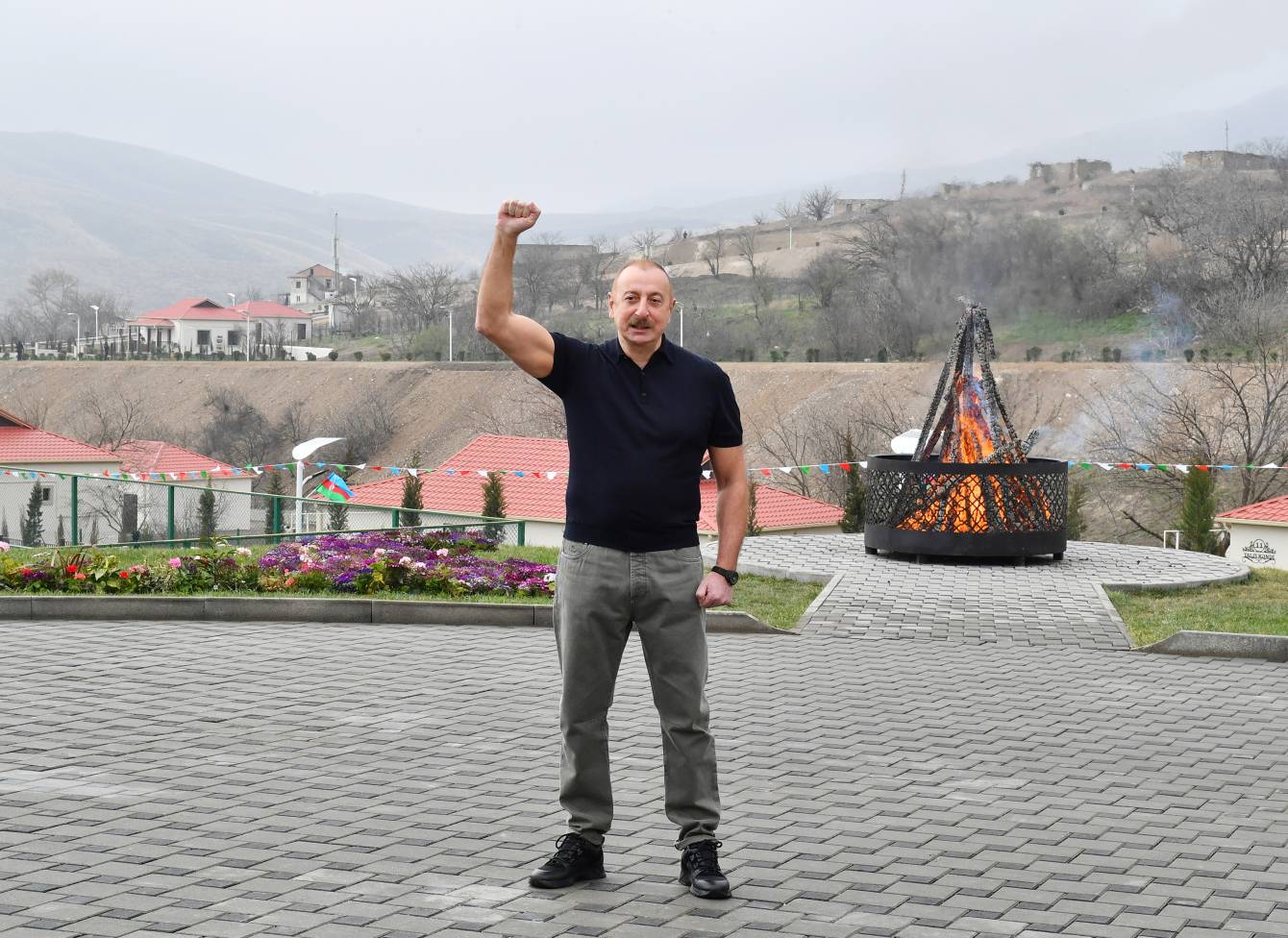




 Turkmen President Serdar Berdimuhamedow and British Secretary of State for Foreign Affairs, Commonwealth Affairs, and Development David Cameron dis...
Turkmen President Serdar Berdimuhamedow and British Secretary of State for Foreign Affairs, Commonwealth Affairs, and Development David Cameron dis...
 A draft resolution aimed at preventing the development and deployment of weapons of mass destruction (WMDs) in outer space, co-sponsored by Japan a...
A draft resolution aimed at preventing the development and deployment of weapons of mass destruction (WMDs) in outer space, co-sponsored by Japan a...
 Russia and Ukraine have engaged in direct negotiations facilitated by Qatar to address the exchange of children affected by the ongoing conflict.
Russia and Ukraine have engaged in direct negotiations facilitated by Qatar to address the exchange of children affected by the ongoing conflict.
